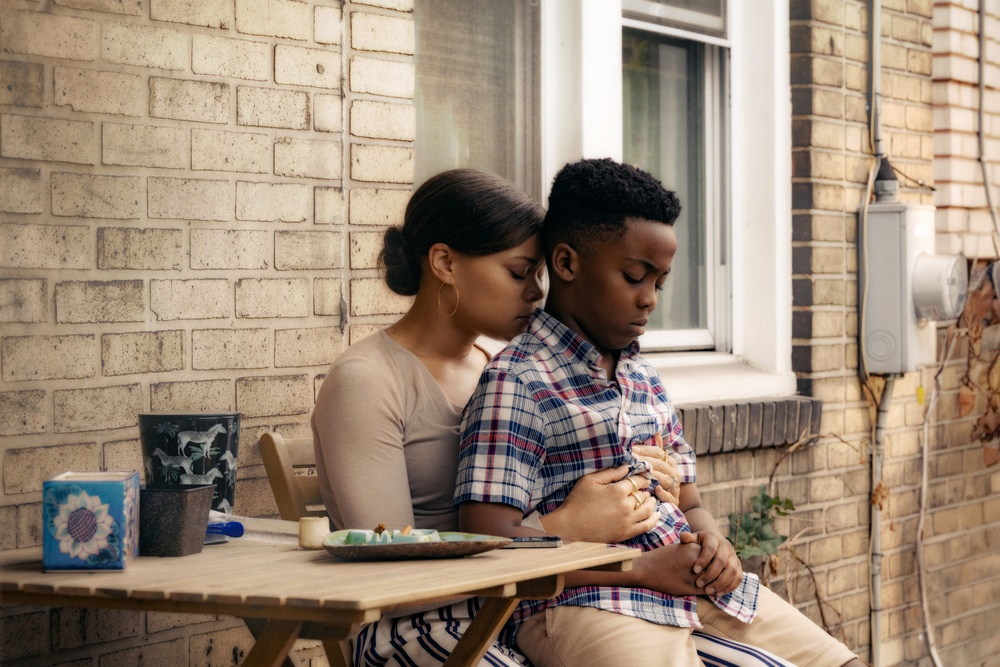The Deliverance

Andra Day and Anthony B. Jenkins star in THE DELIVERANCE. (Photo: Netflix)
As a supernatural horror saga grounded in blue-collar desperation and socioeconomic oppression, The Deliverance struggles to exorcise its narrative demons.
This stylish and evocative thriller from director Lee Daniels (Precious) explores fractured families, cycles of violence and abuse, unresolved trauma, and bad parenting. However, its intriguing premise is squandered by a plot that becomes overrun with genre tropes in the second half.
The story follows Ebony (Andra Day), a temperamental single mother in a biracial family struggling with alcoholism and financial troubles, seeking a fresh start in a new Pittsburgh home with her three children.
Their father’s whereabouts are unknown, other than references to military deployment, and the domineering presence of her diva mother, Alberta (Glenn Close) — who is undergoing chemotherapy treatments — adds another layer of stress and volatility.
Ebony is reluctant to confront her vices. “I drink sometimes, like everybody else does,” she rationalizes. Yet she makes an easy target for a social worker (Mo’Nique) whose frequent and contentious visits focus on child welfare.
It’s not long before youngest son Andre (Anthony B. Jenkins), a loner and aspiring artist, suffers from erratic outbursts and claims to be hearing voices. His teenage siblings (Caleb McLaughlin and Demi Singleton) seem powerless to help.
Hints emerge that their problems extend beyond unpaid bills, neighborhood bullies, health issues, and relationship turmoil. Is the house haunted? Are the children possessed? Is mental illness to blame for Ebony’s paranoid hallucinations?
The disturbing behavior escalates, endangering the family as she and Alberta fiercely defend themselves against accusations. Experiencing a crisis of faith, Ebony reluctantly visits a cleric (Aunjanue Ellis-Taylor) with experience in both spirituality and the paranormal.
Day (The United States vs. Billie Holiday) and Close generated hard-earned sympathy with committed performances in an otherwise muddled examination of maternal instincts and organized belief systems.
Despite some visual flourishes, the screenplay by David Coggeshall (The Family Plan) and Elijah Bynum (Hot Summer Nights) goes off the rails in a final act that’s silly rather than scary, as the film serves to cue up an inevitably intense final showdown between good and evil.
Indeed, the setup significantly outweighs the payoff in The Deliverance, which winds up thematically more familiar than fresh.
Rated R, 111 minutes.